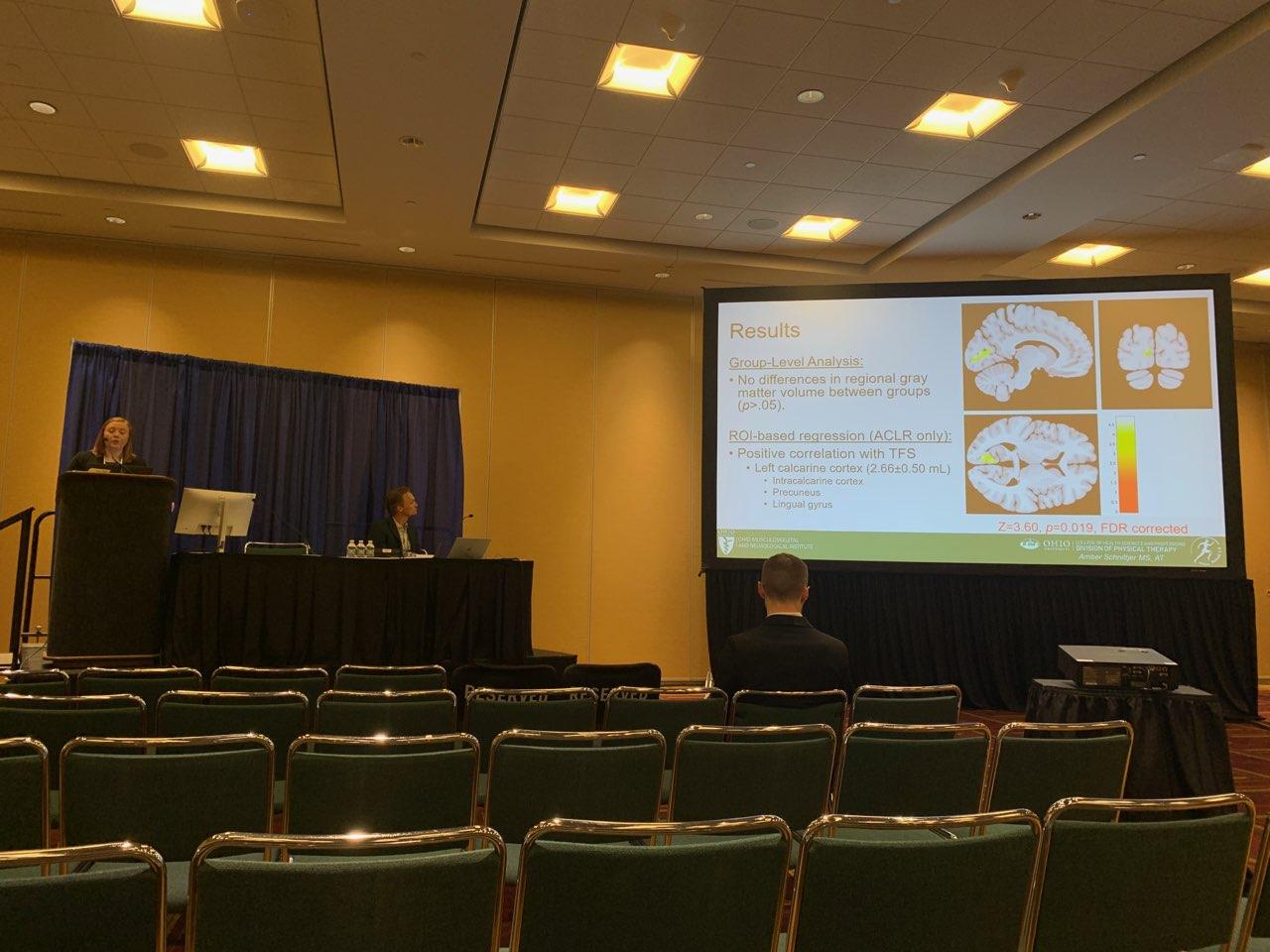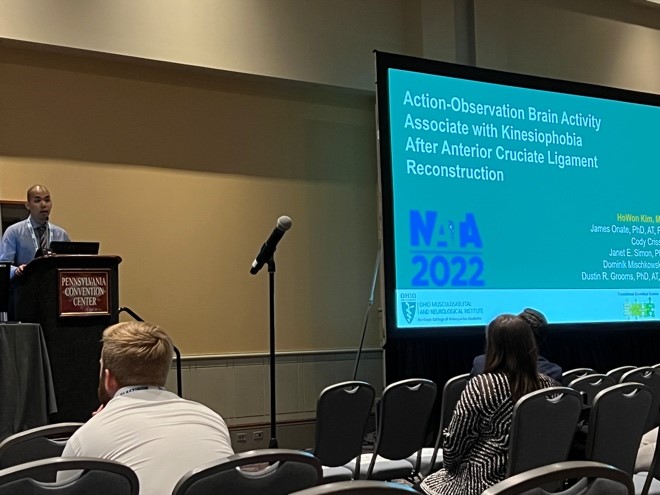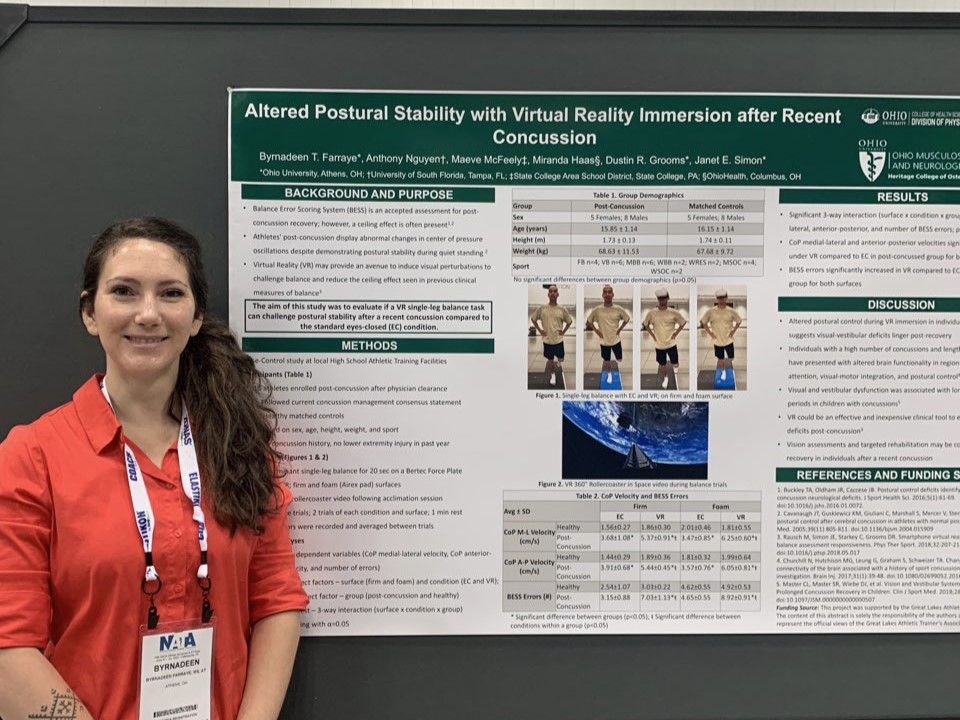Amber Schnittjer

At the 2023 NATA conference, Amber presented a project titled "Visual Cortex Gray Matter Volume Correlates with Time from Surgery in Anterior Cruciate Ligament Reconstructed Individuals". The main takeaway is that structural neuroimaging may indicate sensory-reweighting via cross-modal processing following ACLR that increases with time.
HoWon Kim

At the 2022 NATA conference, HoWon Kim presented his fMRI data, which investigated brain activity during an action-observation drop vertical jump paradigm. The purpose of the study was twofold: to compare brain activity between the ACLR cohort and healthy controls and to determine the neural correlates between Kinesiophobia (fear of movement/reinjury) and brain activity during the action-observation drop vertical jump paradigm.
HoWon discovered lower brain activity in the right ventrolateral frontal cortex in the ACLR group compared to the healthy control group during the action-observation drop vertical jump task. Additionally, within the ACLR group, higher levels of Kinesiophobia were associated with increased activity in the amygdala, middle temporal gyrus, and cerebellum. These results indicate that the ACLR group employs different neural strategies, and Kinesiophobia further influences brain activation in this group. These findings imply a potential need for new rehabilitation strategies to address psychological changes following musculoskeletal injuries.
Furthermore, this project received the 2022 National Athletic Trainers’ Association Free Communication Award for Post-Professional Terminal Degree Students.
Byrnadeen Farraye

At the 2023 NATA conference, Byrnadeen presented a case-control study that aimed to identify if a virtual reality (VR) single-leg balance task could challenge postural stability after a recent concussion compared to the standard eyes closed condition. The Balance Error Scoring System is widely used for post-concussion recovery, but has a ceiling effect that may limit clinical utility.
High school athletes with a recent concussion demonstrated altered postural control during a VR immersive single-leg balance task compared to the eyes closed condition and healthy matched controls. Visual-vestibular deficits may linger past concussion recovery and are not being observed due to the ceiling effect of the standard eyes closed condition of the BESS test.

